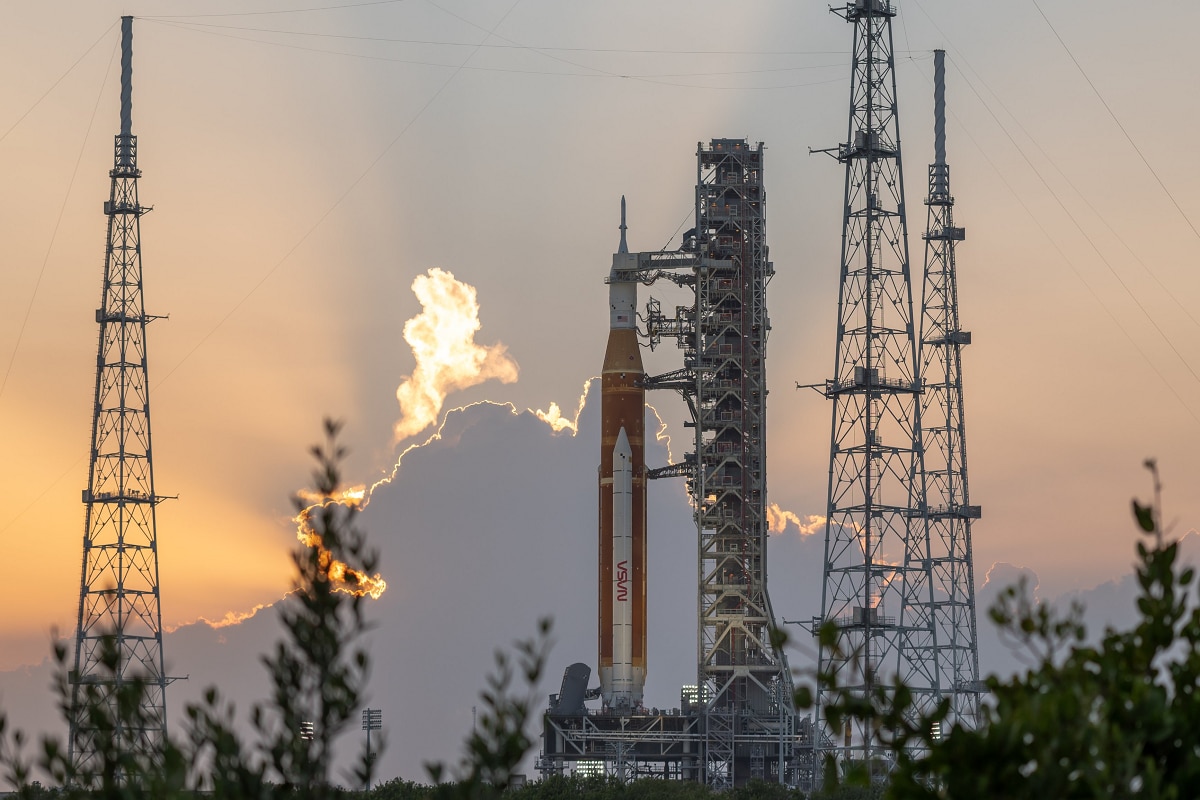
Cape Canaveral: NASA on Saturday confirmed that it called off its second attempt to launch the debut test flight of the 30-story Artemis moon rocket due to fuel leakage issue. The fuel leakage was reported as liquid hydrogen was being pumped into the rocket. However, no new date for another attempt was immediately announced.Also Read – NASA’s Artemis I Launch Mission: Clouds Of Doubt Still Hover Due To Unfavourable Weather
NASA in a statement said that the team had attempted to fix the fuel leak issue but was ‘unsuccessful’. Also Read – NASA to Launch Artemis-1 Moon Mission at 11.47 PM Today. Why Timing Is So Specific | Explained
“The #Artemis I mission to the Moon has been postponed. Teams attempted to fix an issue related to a leak in the hardware transferring fuel into the rocket, but were unsuccessful,” NASA said in the statement. Also Read – Artemis 1 Lego! Who Are Onboard NASA’s Uncrewed Moon Mission? Meet The Team
The #Artemis I mission to the Moon has been postponed. Teams attempted to fix an issue related to a leak in the hardware transferring fuel into the rocket, but were unsuccessful. Join NASA leaders later today for a news conference. Check for updates: https://t.co/6LVDrA1toy pic.twitter.com/LgXnjCy40u
— NASA (@NASA) September 3, 2022
“During tanking of the #Artemis I mission, a leak developed in the supply side of the 8-inch quick disconnect while attempting to transfer fuel to the rocket. Attempts to fix it so far have been unsuccessful,” NASA had earlier said.
As millions around the globe and hundreds of thousands on nearby beaches were waiting for the historic launch of the massive Space Launch System (SLS), a leak near the base of the rocket was found as ultra-cold liquid hydrogen was being pumped in.
However, NASA said the engineers would “stop flowing liquid hydrogen to the tank, close the valve used to fill and drain it,” then try to reseal it.
Saturday’s launch was scheduled for 2.17 pm (1817 GMT) from Kennedy Space Center in Florida.
It must be noted that the initial launch attempt was halted after engineers detected a fuel leak and a sensor showed that one of the rocket’s four main engines was too hot. Both issues were resolved, the launch team said.
Just before 06:00 am (1000 GMT) on Saturday, launch director Charlie Blackwell-Thompson had given the go-ahead to start filling the rocket’s tanks with cryogenic fuel. Nearly three million liters of ultra-cold liquid hydrogen and oxygen was expected to be pumped into the spacecraft.
Moreover, the weather was also appeared to be cooperating for the rocket launch. The whole purpose of the Artemis 1 mission was to verify that the Orion capsule, which sits atop the SLS rocket, is safe to carry astronauts in the future.
Stay connected with us on social media platform for instant update click here to join our Twitter, & Facebook
We are now on Telegram. Click here to join our channel (@TechiUpdate) and stay updated with the latest Technology headlines.
For all the latest Technology News Click Here
